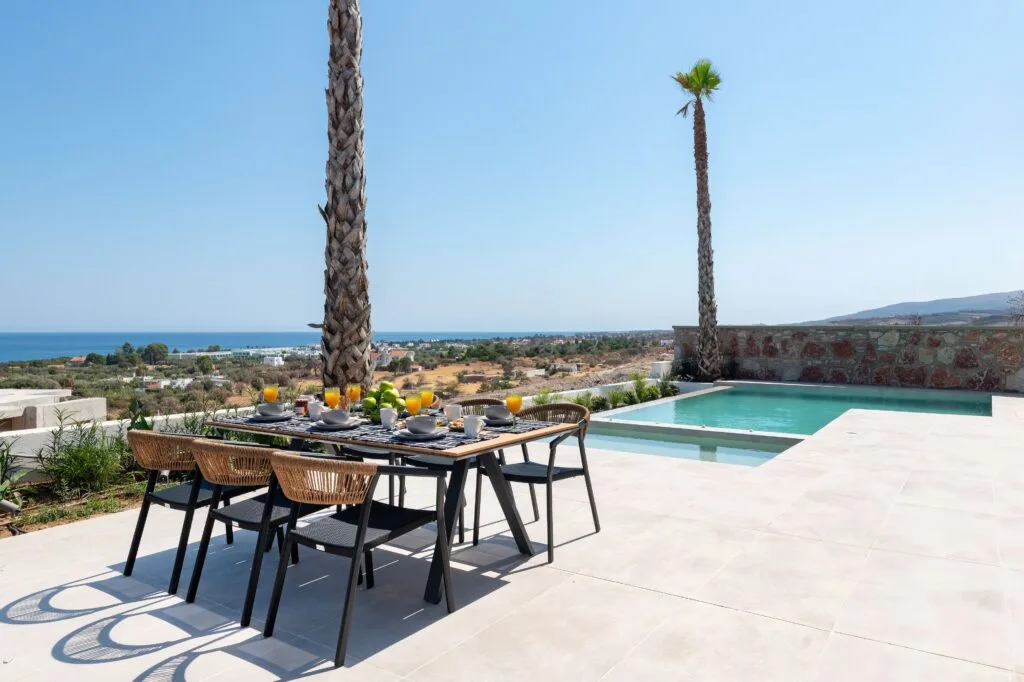

If you are considering buying or selling a property in Greece, you may have questions about the Energy Performance Certificate (EPC). Here we explain what an EPC is, whether you need it, and what you need to do to obtain it.
An Energy Performance Certificate (EPC), also known as an energy label, is a document that assesses the energy efficiency of a building. The certificate gives an insight into how well a building uses energy and how it performs in terms of energy consumption. It is a standardised way of showing how energy-efficient a building is.
Yes, you need an EPC if you want to buy, sell or rent a building of more than 50 square metres. This applies to both existing homes and new buildings. The certificate is also mandatory when selling or renting a property and must be mentioned in sale or rental advertisements by estate agents in Greece.
For new construction projects or renovations, the EPC is usually issued only once the project is fully completed.
Ja, de termen “Energieprestatiecertificaat” en “energielabel” verwijzen naar hetzelfde document. Beide termen worden gebruikt om de energie-efficiëntie van een gebouw te beoordelen en te certificeren.
The cost of obtaining an EPC can vary, depending on the size and type of building. On average, the cost is between €100 and €300. These costs may be higher for larger or more complex buildings. It is a good idea to compare quotes from different certified energy consultants to get an accurate price.
As the owner of a property in Greece, you need to ensure that your property meets energy requirements. This may include:
By securing a valid EPC and possibly considering energy efficiency improvements to your home, you can not only comply with regulations, but also increase the value of your home and contribute to a more sustainable living environment.
Energieprestatiecertificaten (EPC’s) maken deel uit van een breder Europees initiatief dat gericht is op het verhogen van energiebewustzijn en het bevorderen van energie-efficiëntie. Het systeem werd geïntroduceerd door het ministerie van Milieu en Energie om woningzoekers meer inzicht te geven in de energieklasse van gebouwen.
The idea behind EPCs arose from the need to provide transparency on the energy performance of buildings. This initiative helps buyers and tenants understand how much energy they can expect to consume in their new home. For modern homes recently built or renovated, the EPC provides a clear indication of expected energy expenditure.Here we explain what an EPC is, whether you need it, and what you need to do to obtain it.
For older homes, such as the charming houses in picturesque villages that have been unchanged for decades, EPCs serve as a useful tool. They give both buyers and sellers an idea of whether there is a need to improve insulation or other energy efficiency measures. This can help to make outdated houses more energy efficient and plan any improvements that could increase energy performance.
In Greece, where buildings account for about 36% of total energy consumption, increasing energy efficiency is particularly relevant. The EPC provides valuable information that helps reduce energy consumption and costs, which is both economically and environmentally beneficial.
By obtaining and using an EPC, homeowners and potential buyers can make informed decisions about their energy consumption and investments in energy-saving measures. This contributes to a more sustainable future and helps control energy costs.